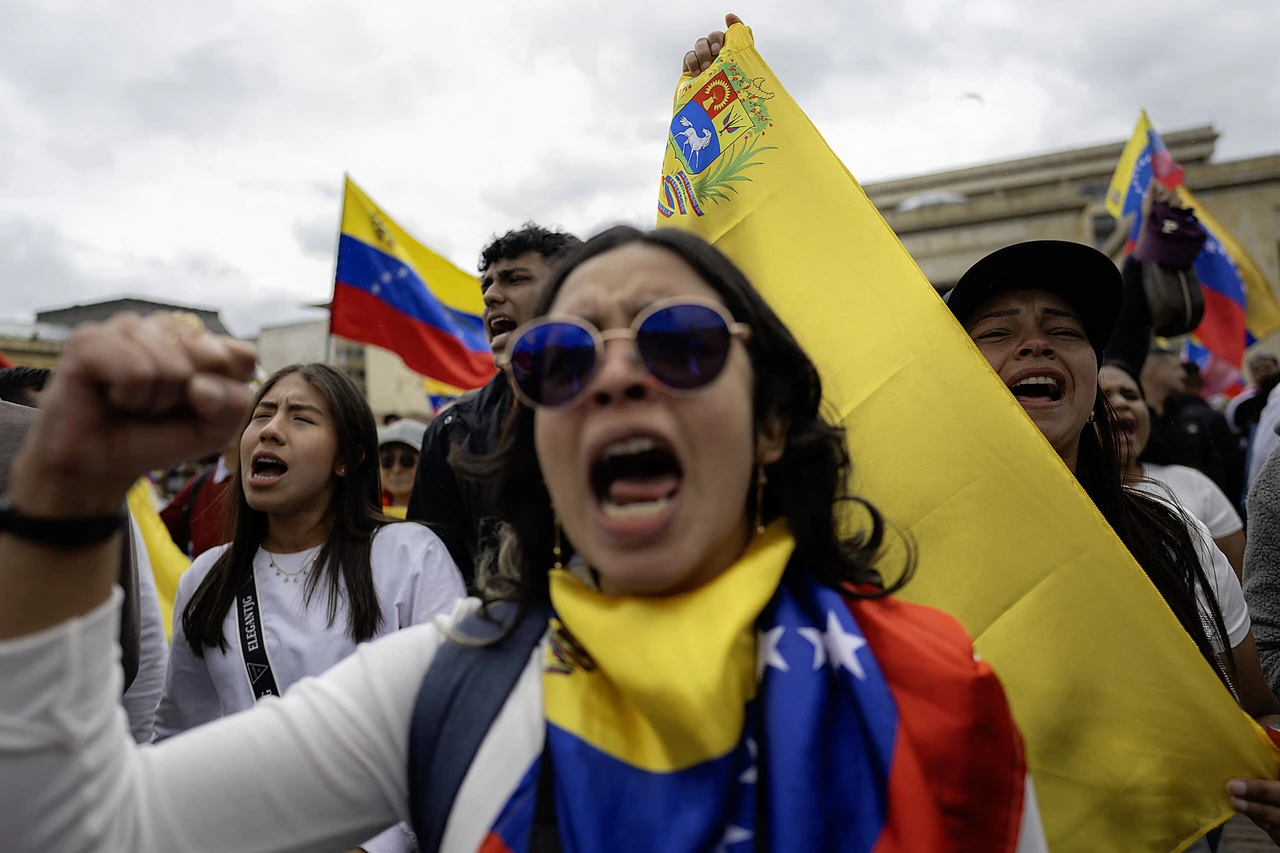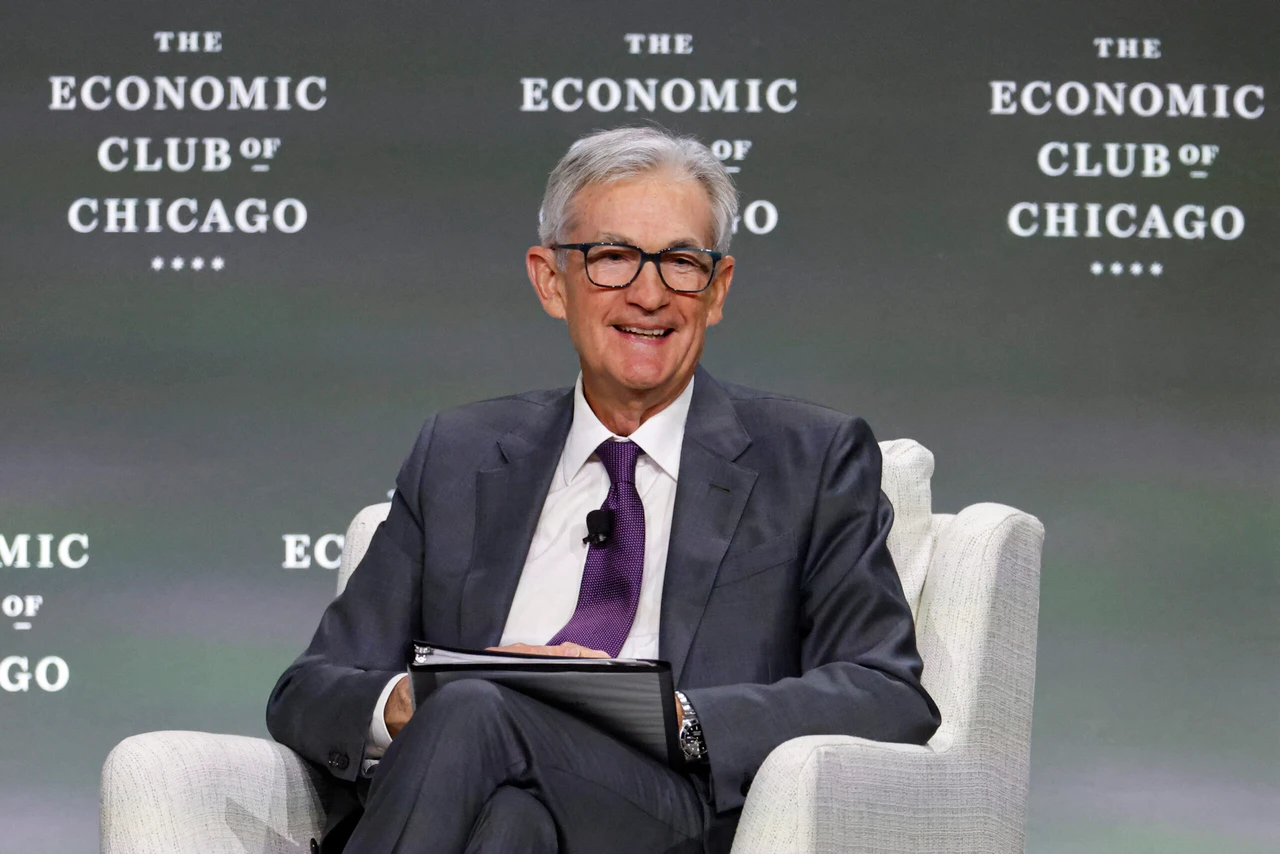Venezuela erupts in protest over disputed presidential reelection
 Demonstrators shout slogans during a protest against Venezuelan President Nicolas Maduro's disputed victory in the presidential elections on July 28 at Bolivar Square in Bogota on August 3, 2024. (AFP Photo)
Demonstrators shout slogans during a protest against Venezuelan President Nicolas Maduro's disputed victory in the presidential elections on July 28 at Bolivar Square in Bogota on August 3, 2024. (AFP Photo)
Thousands of people, led by a top opposition figure, gathered across Venezuela on Saturday to protest the widely disputed reelection of President Nicolas Maduro, as his supporters responded to his own call for competing rallies.
Opposition leader Maria Corina Machado thrilled supporters in Caracas when she made a surprise appearance in a truck bearing a banner reading “Venezuela has won!” after spending several days in hiding.
Machado had backed the candidacy of Edmundo Gonzalez Urrutia after she herself was banned from running. Backers cried out “Freedom!” as her truck passed by on Saturday.
“We have never been so strong as today,” Machado told the crowd, adding that “the regime has never been weaker… it has lost all legitimacy.”
Government and diplomatic fallout
Maduro also called on his supporters to turn out for “the mother of all marches” later in the afternoon. He accused the opposition of plotting attacks against security forces during their rallies.
Eleven civilians reportedly have died and more than 1,000 have been detained in the protests that erupted after the country’s CNE election authority, loyal to Maduro, on Friday proclaimed him the winner with 52 percent of the vote to 43 percent for Gonzalez Urrutia.
But that result has been rejected by countries including the United States, Argentina, Costa Rica, Ecuador, Panama, and Uruguay. They say available results show the opposition candidate to be the clear winner.
The government has ordered the expulsion of diplomats from some countries questioning his victory. Argentine diplomats who reached Buenos Aires on Saturday said power had been cut to their embassy, as hooded police kept guard outside.
International and opposition response
The 61-year-old Maduro has reacted fiercely to the widespread international criticism, describing allegations of vote fraud as a “trap” orchestrated by Washington to justify “a coup.”
Maduro has led the oil-rich, cash-poor country since 2013, presiding over a GDP drop of 80 percent that pushed more than seven million of once-wealthy Venezuela’s 30 million citizens to emigrate. Experts blame economic mismanagement and US sanctions for the collapse.
Gonzalez Urrutia did not show up to a hearing at the Supreme Court after Maduro requested the tribunal investigate and certify the election result. However, other opposition candidates summoned to the hearing called for a detailed vote count to be made public.
The opposition has launched a website with copies of 84 percent of ballots cast, showing an easy win for Gonzalez Urrutia. The government claims these are forged.
Machado, who was barred from running herself, wrote in The Wall Street Journal that she was in hiding and “fearing for my life,” along with other opposition leaders.
The NGO Foro Penal reported 11 dead in protests Monday and Tuesday as angry Venezuelans took to the streets, and Machado said at least 20 people had been killed. Officials said one soldier died as well.
The crackdown has sparked fear among opposition supporters, with memories still fresh of a wave of repression under the Maduro government in 2017 that left some 100 people dead.
“We have dead, wounded, detainees, missing people… People know it. They are afraid,” Katiusca Camargo, an activist in the Petare slum in eastern Caracas, said Saturday.
US Secretary of State Antony Blinken said Thursday there was “overwhelming evidence” that Gonzalez Urrutia had won the election. Blinken spoke with Machado and Gonzalez Urrutia on Friday, expressing “his concern for their safety and well-being” and congratulating Gonzalez Urrutia “for receiving the most votes,” the State Department said.
In a joint statement, Brazil, Colombia, and Mexico urged an “impartial verification” of the result.
Maduro’s previous reelection, in 2018, was rejected by dozens of Latin American countries as well as the United States and European Union member states. He enjoys loyalty from the military leadership, electoral bodies, courts, and other state institutions, as well as the backing of Russia, China, and Cuba.



